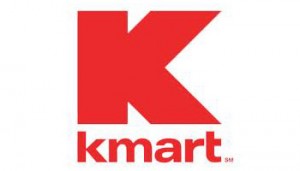 The importance of choosing a background screening company that prides itself on being more than a transactional organization, cannot be overstated. Employers need HR Investigators who dig deeper and go beyond the surface of uncovered information to ensure data accuracy and legal compliance. Without this thorough approach, employers may hire dangerous and/or unqualified people, or, conversely, job applicants may lose opportunities because their identity is not properly verified. Either of these outcomes is bad for business. Hiring decisions based on bad data can land an employer in court (or worse).
The importance of choosing a background screening company that prides itself on being more than a transactional organization, cannot be overstated. Employers need HR Investigators who dig deeper and go beyond the surface of uncovered information to ensure data accuracy and legal compliance. Without this thorough approach, employers may hire dangerous and/or unqualified people, or, conversely, job applicants may lose opportunities because their identity is not properly verified. Either of these outcomes is bad for business. Hiring decisions based on bad data can land an employer in court (or worse).
Talented investigators avoid potentially negative hiring decisions by putting forth the added review and research required of every background check they perform.
Below are two real-world cases of checks that needed the extra time and attention.
A Picture Worth a Thousand Words
When running a criminal background check with a name and date of birth provided by the job applicant, a serious sex offense was discovered. The names did not match up and the middle initial of the job applicant matched only the first name of the convicted sex offender. Additional research led the investigator to discover several alias names, one of which matched the applicant, with a matching date of birth. The sex offender registry listed an address that, although similar, did not match with the information the applicant provided. Rather than giving up, the investigator grew resourceful. She forwarded a copy of the sex offender’s photo from the online registry to our client and asked that they confirm whether it was their job applicant. Sure enough, the convict and the job applicant were the same person. These extra steps positively identified a rapist who went out of his way to avoid detection, including providing an invalid address. Had the investigator run the sex offender search and nothing more, this applicant’s record would have been returned as clean, and the employer may have made a hiring decision without critical information about the applicant’s character and past criminal activity.
Good Guy/Bad Guy
In another example based on actual events, a criminal records researcher prevented an uninformed hiring decision for another employer due to his keen instincts, due diligence and understanding of what constitutes a “red flag” when performing a background search. In this case, a job applicant’s information was run through the applicable state’s sex offender registry. The applicant’s name matched an offender, but the year of birth did not match. Further, a social security number trace did not verify. A call to the client to verify the SSN and date of birth led our investigator to an entirely different SSN and date of birth. The correct SSN was run and the address matched that of the sex offender. A Google search found that the education, prior job experience, and resume did match with the information provided by the job applicant. Unfortunately, there were two different individuals with identical information. The individual purporting to be the Good Guy was actually a Bad Guy. The Bad Guy found the Good Guy’s resume and other information online and copied it onto his employment application. A classic case of identity theft! Turns out, the Bad Guy had an extensive criminal record, including forgery, criminal trespassing, and stalking. The frightening part is that without the foresight to follow up with the client about the personally identifiable information initially provided by the applicant, the education and employment information would have checked out as there was an individual by the same name who studied and worked as put forth on the consent form. Had the investigator not contacted the client to confirm the SSN, this criminal would have skated through the background check and come out clean on the other side.
At First Contact HR, the real-life illustrations above are used as a teaching resource for all new HR Investigator hires. If a SSN does not verify, there is a name hit (even if other information does not match) and/or the job applicant lists all previous employers as “supervisor no longer there,” prudence requires follow up and additional research by a team of HR Investigators.
For more information about First Contact HR’s background screening services and human resources consulting solutions, please call 267-419-1390 or email us at client.services@firstcontacthr.com











